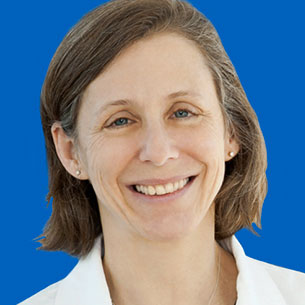This year, the ASCO International Development and Education Award (IDEA) celebrates its 20th anniversary. The IDEA program, which enables early-career oncologists from low- and middle-income countries (LMICs) to attend the ASCO Annual Meeting, visit a cancer center in the U.S. or Canada, and establish an ongoing relationship with an expert mentor, is an incredible career-launching opportunity for its participants. You can read about some of their experiences in our cover story and in firsthand accounts from Dr. Narmin Talibova of Azerbaijan and Dr. Layth Mula-Hussain of Iraq. IDEA alumni—more than 400 of them, since the program launched in 2002—return to their home countries with knowledge, experience, and support to enrich their local cancer care programs, build capacity, and maximize resources to elevate the quality of care.
But the real impact of IDEA, and programs like it, extends far beyond the individual recipient. If we could light up a map with the IDEA recipients of the past 20 years, their mentors, and all the people they have met, connected with, and collaborated with through their participation in the program, the globe would be covered in a bright web of relationships—the foundation for the interconnected, highly collaborative future of cancer clinical research.
International collaboration in cancer clinical trials is critical. Working together across geographic borders enables us to accrue and complete high-quality studies more quickly. It helps ensure diversity in the population of trial participants, making our therapeutic conclusions more generalizable. And it is nothing short of essential in the setting of rare cancers.
These are not new ideas—IDEA began in 2002, and a paper by Trimble et al in 20091 stated, “Our ability to strengthen international collaborations will result in maximization of our resources and patients, permitting us to change practice by establishing more effective therapeutic strategies. Regulatory, logistical, and financial hurdles, however, often hamper the conduct of joint trials. We must work together as a global community to overcome these barriers so that we may continue to improve cancer treatment for patients around the world.”
But as the pandemic proved that we can collaborate across oceans and time zones with relative ease, there has never been a more pertinent moment for all of us to consider how we can engage with colleagues in other countries to solve the problems of cancer. In my own area of practice, I’ve been thinking about research on cervical cancer disparities, and how lessons from LMICs can be applied to underserved areas of the United States. For example, in areas of the U.S. where access to HPV vaccination is limited and screening approaches must be adapted, we may consider adapting strategies that are currently being used successfully in LMICs. We can also study successful community engagement strategies with respect to vaccine uptake in other countries in order to increase vaccine uptake in the U.S.
This is not about high-income countries altruistically helping LMICs. This is about true bidirectional collaboration in pursuit of high-quality care. Oncology professionals in every country, at every resource level, have insights to share as well as lessons to learn.
Reference
- Trimble EL, Abrams JS, Meyer RM, et al. Improving cancer outcomes through international collaboration in academic cancer treatment trials. J Clin Oncol. 2009;27:5109-14.
Disclaimer:
The ideas and opinions expressed on the ASCO Connection Blogs do not necessarily reflect those of ASCO. None of the information posted on ASCOconnection.org is intended as medical, legal, or business advice, or advice about reimbursement for health care services. The mention of any product, service, company, therapy or physician practice on ASCOconnection.org does not constitute an endorsement of any kind by ASCO. ASCO assumes no responsibility for any injury or damage to persons or property arising out of or related to any use of the material contained in, posted on, or linked to this site, or any errors or omissions.


Recent posts